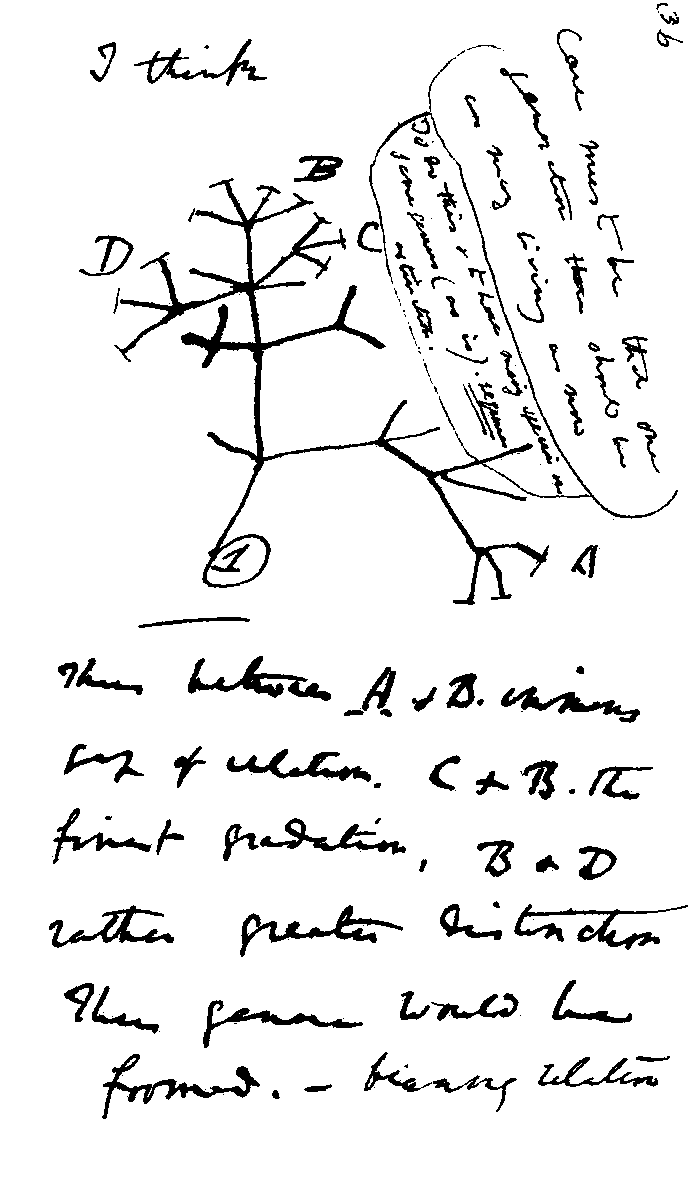Science is hard and evolution is complex. Yet now the majority does accept it and the likely reason is college education. Though it has caused runaway debt and far too many new buildings at universities, unlimited student loans - a big change that took place in the late 1980s - also mean twice as many people get college degrees since 1988.(2) If you go to college, you take some science and it is likely taught better than in high school.
Do you agree with the statement "Human beings, as we know them today, developed from earlier species of animals"? That is what scholars looked for in surveys done by NASA, the National Science Board, and the National Science Foundations starting in 1985. In 2007, only 40 percent overall felt comfortable checking that off but now it is 54 percent.

"I think" is the start of one of the most important concepts in biology. Yet it is hard to get on a deep level. I have argued that since we don't teach quantum mechanics in high school but we do teach Newton. and we don't have brain surgery but do teach anatomy, it might be better to teach genetics but leave evolution to college levels where it is better understood.
54 percent still sounds low, right? Here is the kicker. Though evolution acceptance in America has historically been low, it may actually be because Americans have the highest adult science literacy in the world. Evolution is hard to teach, and when it is taught by people who don't know what they are talking about, it instills more doubt, not less. In other countries, adults care far less about science and are more inclined to blithely accept anything experts tell them. Europe once officially proclaimed that water does not cure thirst and that fruit with blemishes was less healthy and it took a lot of time and money to undo that once the public believed it.
Unsurprisingly, religious fundamentalism is likeliest to lead to rejection of evolution and political pundits once made a big deal out of that, by linking fundamentalism to political conservatives, but they are a relatively tiny number. The largest group with the greatest distrust are Southern Baptists, primarily African-Americans, and Democrats wisely steer clear of criticizing a solid voting bloc for their tribe.
That convenient framing for political purposes is echoed now in a new political hot button; COVD-19. It is easy to find criticism of Republicans when it comes to COVID-19 vaccine uptake but there is little mention that the largest demographic who don't trust it are young black men - they are skeptical of government in a way libertarians can only pretend to be.
NOTES:
(1) Those that did say they accepted evolution were just as likely to be wrong about the details as those who denied it. 'Survival of the fittest' is one of the most misunderstood, and therefore abused, concepts in science, and has led us to bizarre beliefs like Social Darwinism now and Eugenics in the past.
(2) In a bit of economic irony, the Democrats who read results saying that people with college educations earned more money and concluded a college education should be a 'right' in the 1980s are now clamoring to have student loans waived. People who paid their obligations are penalized while French Poetry majors will get a free ride. And it won't solve the problem, since all those buildings and tenured professors still need to be paid, meaning tuitions can't get cheaper and the cycle will just start all over again.




Comments